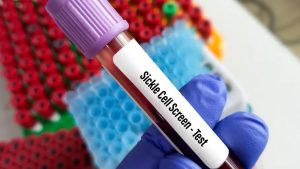A repurposed arthritis drug has shown positive results in a clinical trial of patients hospitalized with COVID-19, according to a paper published Wednesday in the New England Journal of Medicine.
Tofacitinib, taken orally and sold under the brand name Xeljanz among others, was tested in a trial of 289 patients hospitalised with severe COVID across 15 locations in Brazil.
ALSO READ | New York lifts COVID curbs after vaccinating 70% population
Half received the drug — a 10 mg pill twice a day — and standard care like glucocorticoids that tamp down an overactive immune response, while the other half received a placebo and standard care.
After 28 days, 18.1% of the group receiving the tofacitinib progressed to respiratory failure or death, compared to 29% in the placebo group.
This represented a statistically significant relative risk reduction of 63%.
Respiratory failure refers to a patient requiring noninvasive ventilation through an oxygen mask, or being intubated and placed on a mechanical ventilator.
Deaths after 28 days occurred in 2.8% of patients in the tofacitinib group and in 5.5% of those in the placebo group.
Serious side effects occurred in 14.1% in the tofacitinib group and in 12% in the placebo group.
“We are encouraged by the initial findings of our randomized trial of tofacitinib in patients hospitalized with COVID-19 pneumonia,” said Otavio Berwanger of Hospital Israelita Albert Einstein, which coordinated the trial in collaboration with Pfizer.
ALSO READ | California goes maskless to celebrate reopening day as COVID restrictions ease
“These results provide new information which indicates that the use of tofacitinib when added to standard of care, which includes glucocorticoids, may further reduce the risk of death or respiratory failure in this patient population.”
Tofacitinib belongs to a class of drugs called Janus kinase (JAK) inhibitors.
It is approved in the United States to treat conditions including rheumatoid arthritis, psoriatic arthritis and ulcerative colitis.






